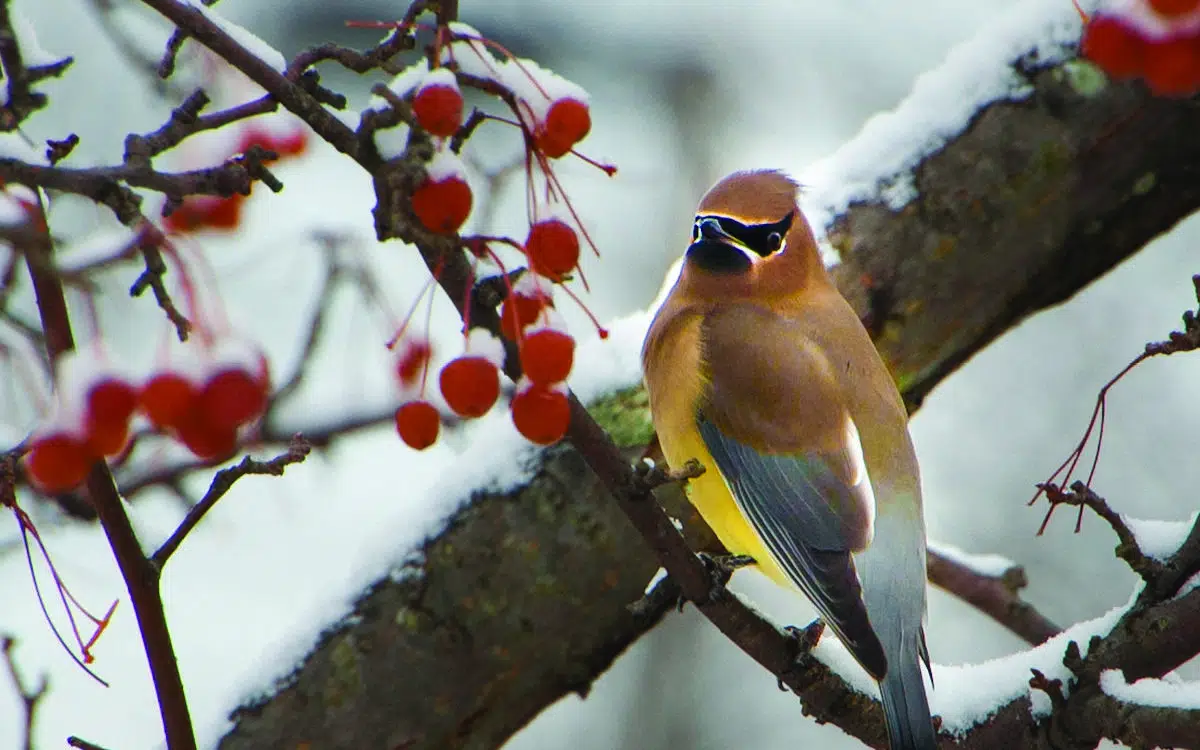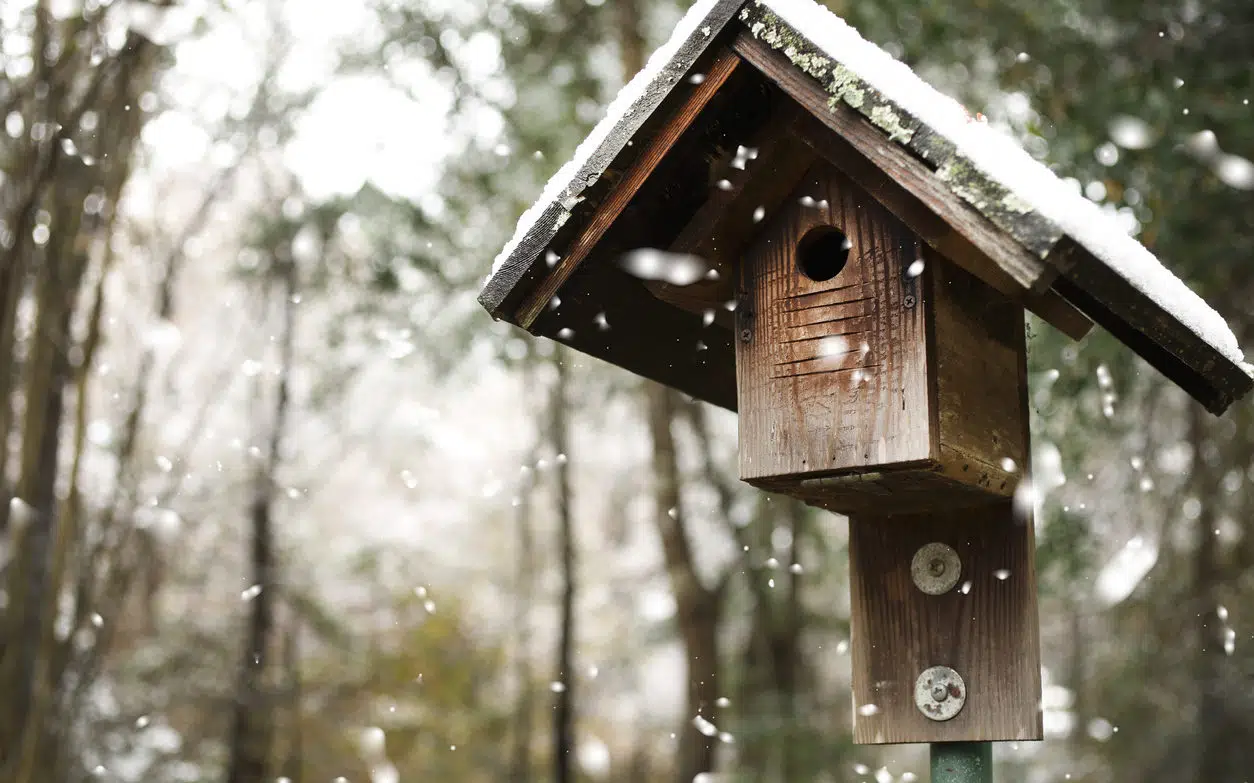
The forests and gardens transition into a pristine, white canvas in winter- an ideal backdrop for spotting many types of birds that spend the winter season on the property.
Here are some birds you should look out for:
Red-bellied Woodpecker, Cedar Waxwing, Eastern Bluebirds, American Goldfinch, Waterfowl, Chickadees, Blue Jays, White-breasted Nuthatch, Crows, Song Sparrows, Redpoll, Red Crossbill, Pine Siskin, Hairy Woodpecker, Tufted Titmouse & more!
Printable Guide
Print this resource and use it as a guide to record the birds you see next time you visit the Holden Arboretum!
What to Look For, A Beginner’s Guide

Trees with berries
Birds like the Cedar Waxwing to fly in flocks as they seek out plants with berries for feeding. It is known for its vibrant red wax droplets on the wing features and you’ll hear its high whistle.

Nesting boxes
Eastern bluebirds group in the provided homes throughout the property and exit to seek out fruit.

Water features
When the ponds are not frozen, you might spot Waterfowl. Chickadees, Blue Jays and White-breasted Nuthatch love the trees on the property’s gardens and forests. In open-field areas, you’ll find Crows and Song Sparrows.
More Tips & Tricks
Walk around
Visit different areas of the arboretum to see different types of birds. Try to get to the natural areas and gardens because it will maximize the number of species you see. Birds like to have different habitats—so don’t spend the whole time in the forest.
Blaze a trail
Rent snowshoes at Holden Arboretum and hike the trails. The frozen landscape is a pristine backdrop where you’ll easily spot birds that can be difficult to view otherwise.
Benefits of Birding
Physical fitness
While the act of birding itself involves little more than the energy required to open your eyes and lift your binoculars, getting to and from your birding spot usually requires a hike that is bound to work up a sweat.
Reduces stress
Being immersed in natural stimuli, including birds and birdsong, trees, and nature scenes, triggers the human parasympathetic nervous system and induces a state of hyperawareness and hyperactivity. This state is relaxation.
Mindfulness and meditation
Noticing and focusing on what is happening in the moment is a hallmark of birding, which requires constant and quiet, steady focus. Add birdsong to the equation, and birdwatching becomes an almost immersive sensory experience that gently draws one’s attention away from the inner monologue and away from the self.
Increases mental fitness
Birdwatching pulls you away from the screen and out into the fresh air, real life, and nature. Exercising the mental faculties involved in observation and identification helps to keep the mind sharp. And the visual stimulus of the natural world is just enough novelty to keep the mind engaged.
Family fun
Birding is a great way to get kids out of the house and spend some quality time as a family. It helps instill an appreciation for nature and the environment in children and helps teach them patience and dedication.













